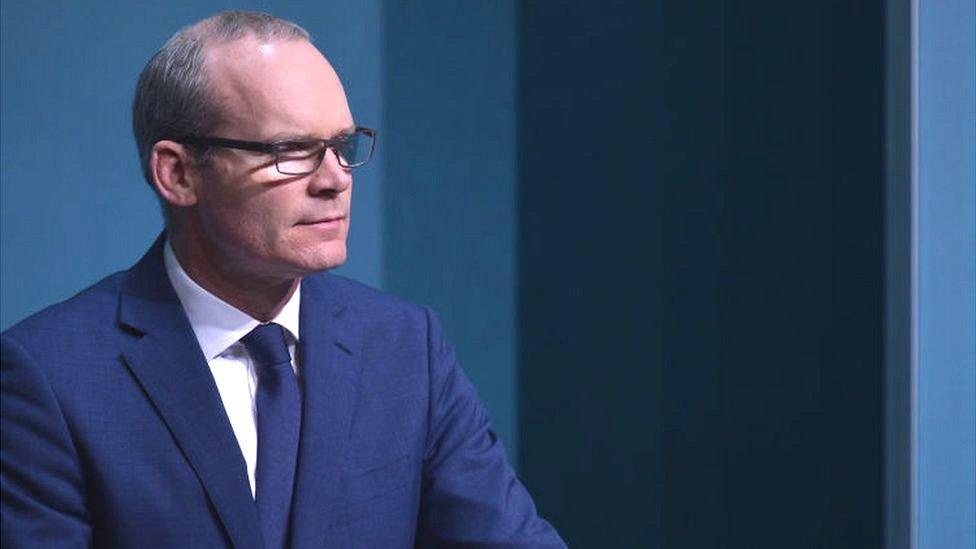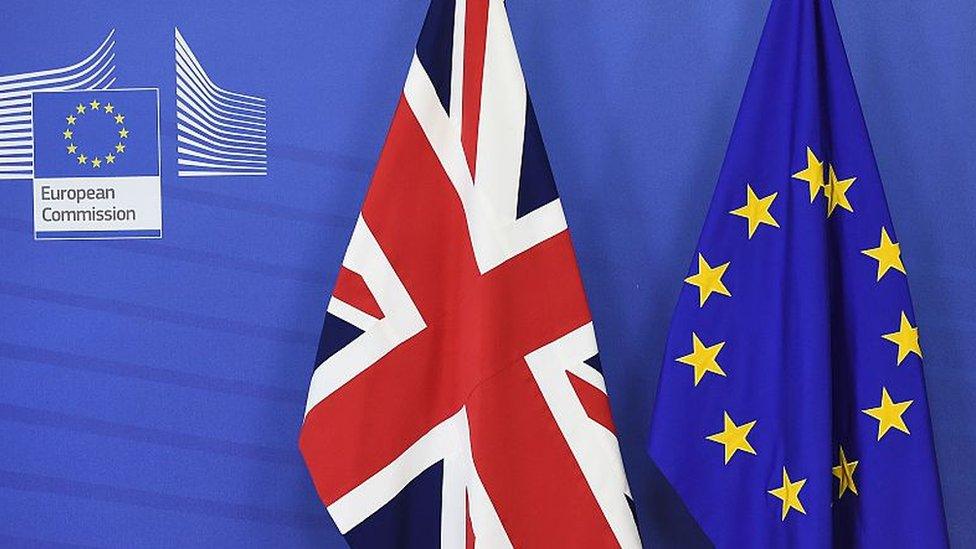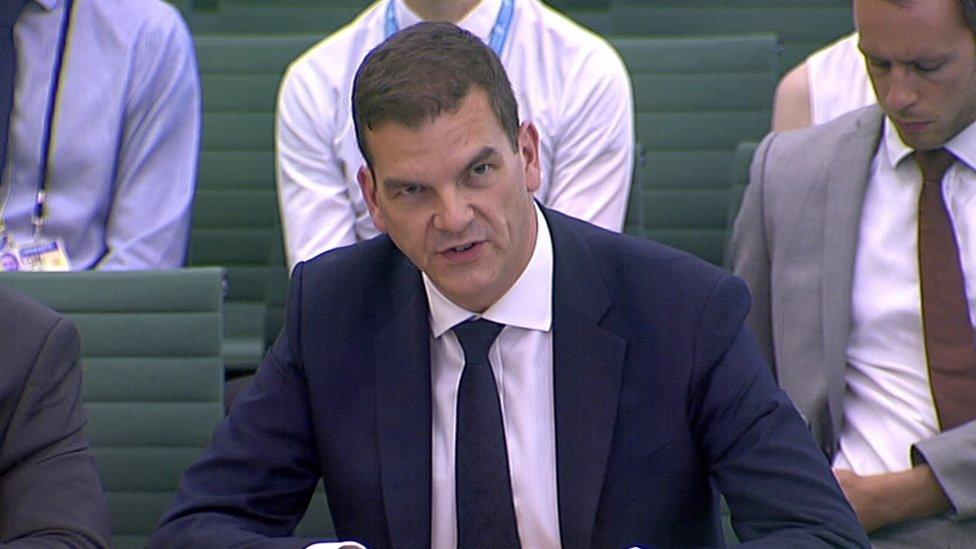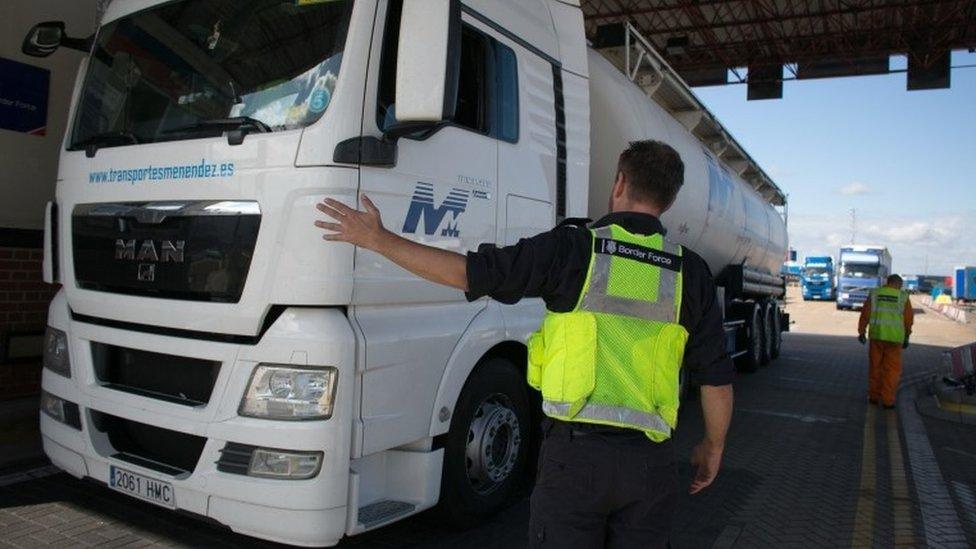Irish Deputy PM says UK can't afford a no-deal Brexit
- Published
- comments

Tánaiste and Irish Foreign Minister said the May 2019 deadline for the UK leaving the EU "could be extended"
Irish Foreign Minister Simon Coveney has warned that the UK "cannot afford" to leave the EU without a deal.
Speaking to the Today programme Mr Coveney described talk of the UK "crashing out of the EU" as "bravado".
The UK is due to leave the EU on 29 March 2019 but has yet to agree how its final relationship with the bloc will work.
The White Paper on the UK's future relationship with the EU was published earlier this month.
'Britain has been negotiating with itself'
Mr Coveney said the negative implications of a no deal Brexit are "very significant for Ireland and for the UK".
"I don't believe Britain crashing out of the EU without any agreed process is likely to happen.
"There is an obligation on me, and others, to instil some positivity into this negotiation process rather than political standoffs which is what we've seen to date".

Ireland's deputy prime minister said his government would back moves to lengthen the negotiating period by extending Article 50 if the UK government requested it, adding the deadline would only be extended if it was "necessary to get a sensible agreement".
Chancellor Philip Hammond said the UK was "well positioned" to get a good deal, and that he did not believe that there was a legal basis to delay Britain leaving the European Union.
Welcoming the publication of the White Paper, Mr Coveney said it gives the negotiating teams a degree of clarity.
"For much of the last six months effectively Britain has been negotiating with itself on Brexit.
"Now at least we have a White Paper where there's a clear British government position and the negotiation between the EU and the UK really starts now in earnest," he added.
'Bravado and political standoffs'
Mr Coveney dismissed as a "simplistic notion" the idea that the only infrastructure in the event of a hard border would be from the EU.
"If the commitments given in December are followed through on then there will be no need for that external border of the EU to result in physical infrastructure.
"We will ensure that the commitments that we have been given around guarantees of no border structure or related checks and controls on the island of Ireland on the Irish border is followed through on," he added.
- Published24 July 2018

- Published17 July 2018
